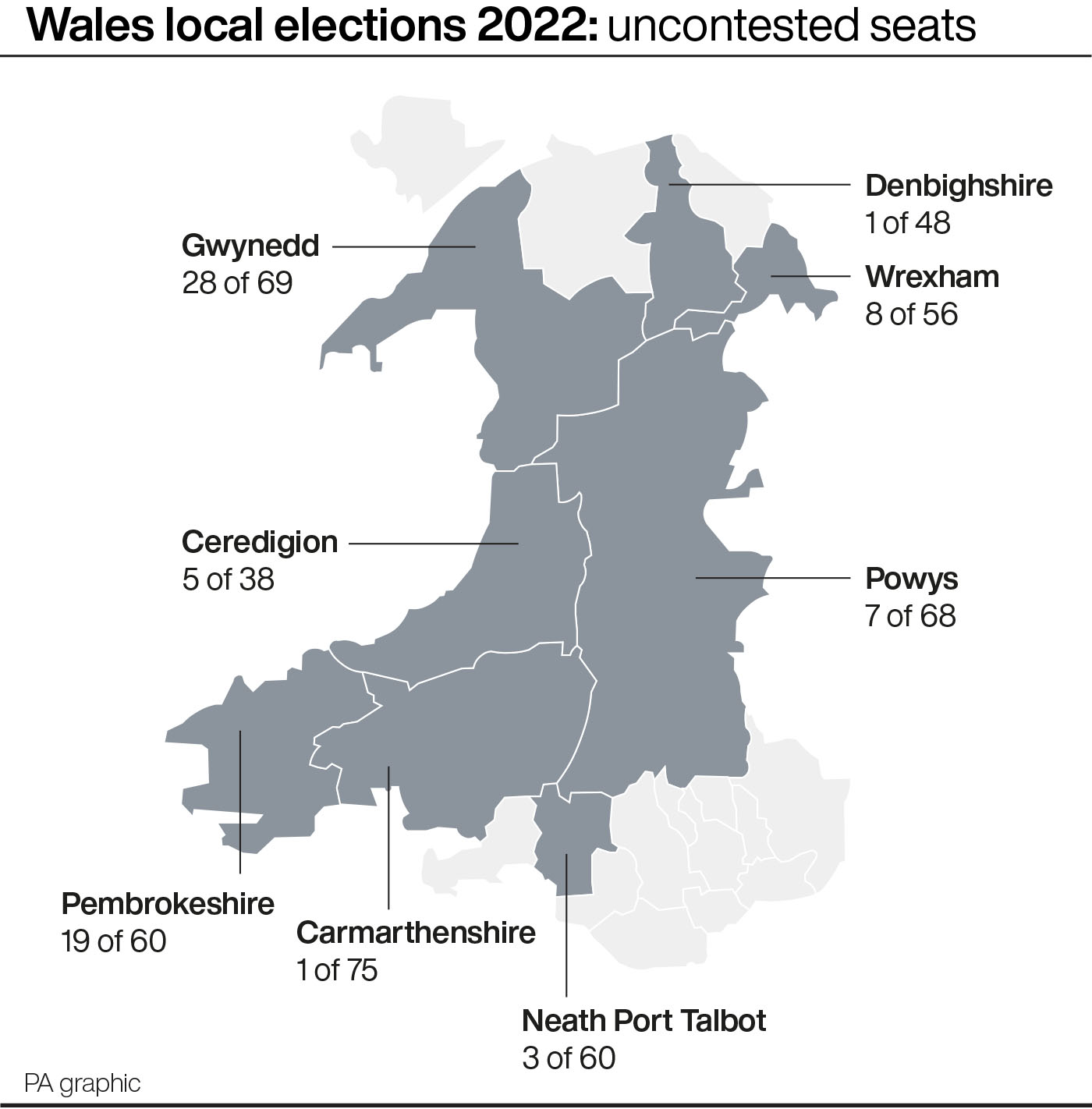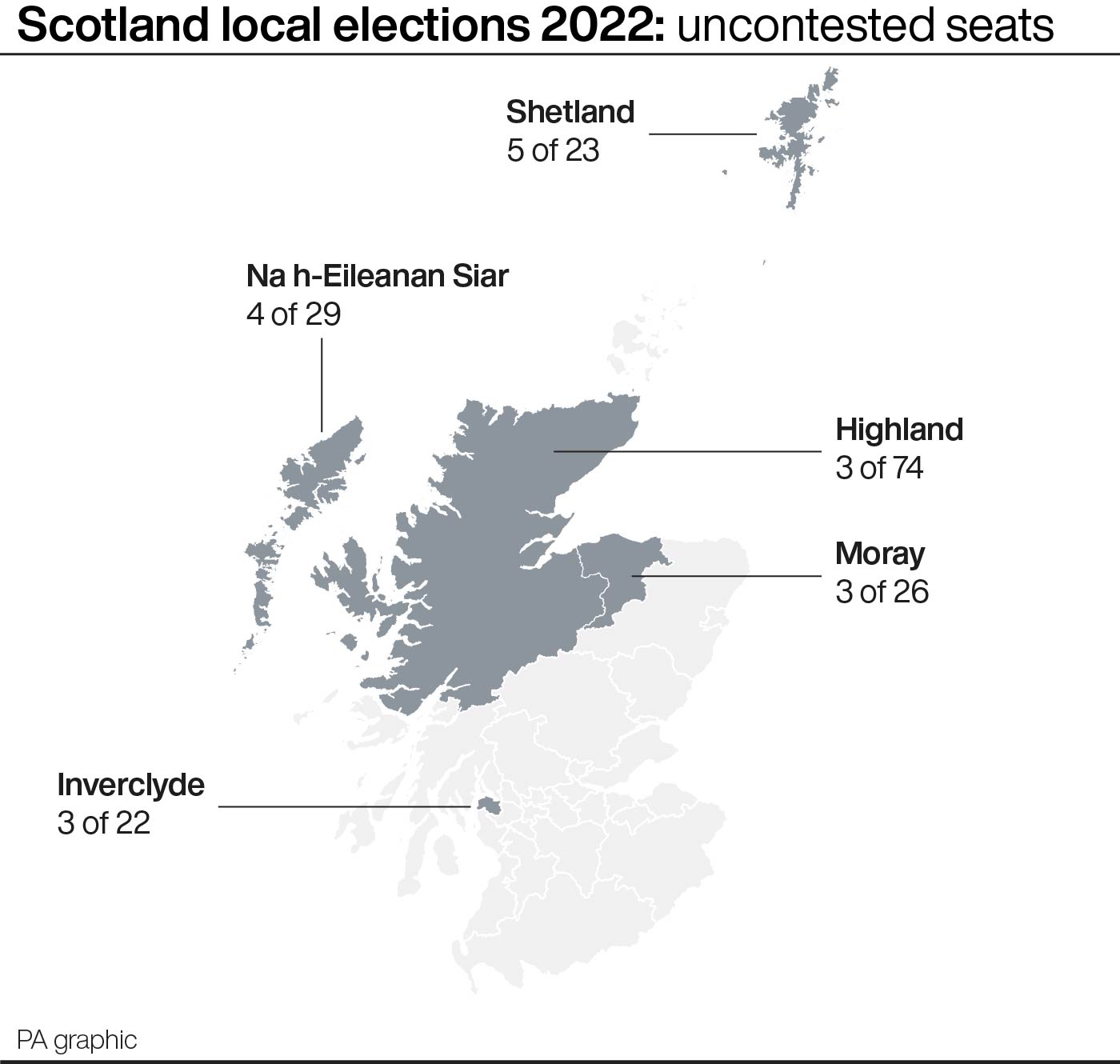
Nearly 100 council seats in this week’s local elections have already been filled, depriving tens of thousands of voters of the chance to have their say on polling day.
A total of 91 seats up for grabs on May 5 have been classed as uncontested, meaning only one candidate put themselves forward.
In the absence of any opposition, the 91 people will be elected automatically – leaving voters in those areas with no opportunity to express a choice at the ballot box.
The majority of uncontested seats are in Wales, where 72 candidates already know they have secured a seat on their local council.
The most extreme example is Gwynedd, where 28 of the council’s 69 seats – just over 40% – saw only one person put themselves forward for election, according to data compiled by the PA news agency.
The 28 are made up of 19 candidates from Plaid Cymru, eight independents and one Liberal Democrat.

In another Welsh council, Pembrokeshire, 19 of the 60 seats are uncontested, comprising 10 independents, four Tories, four Labour candidates and one from Plaid Cymru.
Wrexham council has eight of its 56 seats uncontested, along with seven out of 68 in Powys, five of 38 in Ceredigion, three of 60 in Neath Port Talbot, one of 48 in Denbighshire and one of 75 in Carmarthenshire.
The figures mean around 6% of all council seats up for election in Wales on May 5 have already been filled.
In Scotland, five councils reported they have uncontested seats, though none are on the scale of Gwynedd or Pembrokeshire.
Some five of the 23 seats in the Shetland Islands are uncontested, along with four out of 29 in the Western Isles, three of 22 in Inverclyde, three of 26 in Moray and three of 74 in Highland.
This accounts for just over 1% of all council seats in Scotland.

Just one seat in England is uncontested: St Oswald in Sefton on Merseyside, where the only candidate to stand was from the Labour party.
Uncontested seats are a common factor at local elections in Britain and while the rate is high in certain parts of the country, the overall total has fallen in recent years.
In 1979 nearly one in five (18%) of all council seats up for grabs was unopposed but since 2012 the rate has never been higher than 4%, according to research published by the House of Commons Library.
The total can also vary from year to year, depending on how many councils are holding elections.
In 2018 there were no uncontested seats anywhere in Britain while the following year the number stood at around 2%.
And despite there being a bumper number of elections in 2021, due to many polls having been postponed from 2020 because of the Covid-19 pandemic, only one uncontested seat was reported.
This year 200 local authorities in Britain are holding elections on May 5.
Every council seat in Scotland, Wales and London is up for grabs and there are polls across much of the rest of England.
The 91 uncontested seats account for just over 1% of approximately 6,900 that are due to be filled.


Comments: Our rules
We want our comments to be a lively and valuable part of our community - a place where readers can debate and engage with the most important local issues. The ability to comment on our stories is a privilege, not a right, however, and that privilege may be withdrawn if it is abused or misused.
Please report any comments that break our rules.
Read the rules hereLast Updated:
Report this comment Cancel